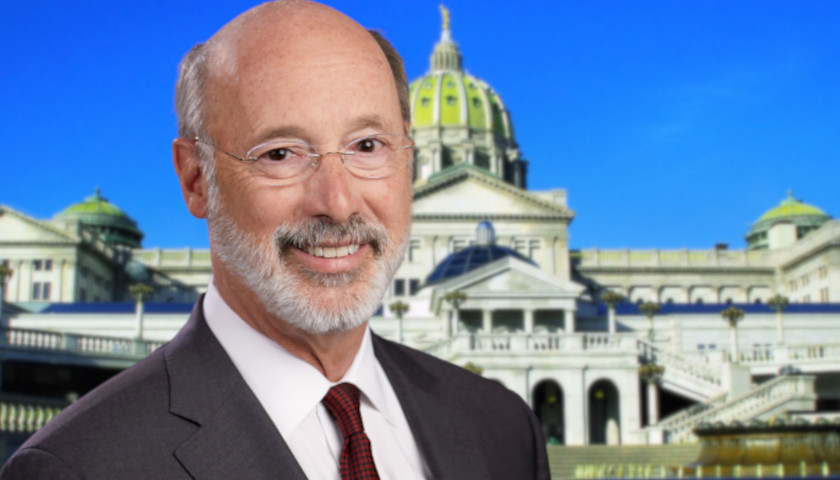Governor Tom Wolf (D) on Friday signed Pennsylvania’s $45 billion budget for fiscal year 2022-23.
The governor and Republican-controlled legislature were only able to agree to the fiscal blueprint a week after the June 30 deadline. Revenues covering budget items include $42.8 billion in state taxpayer dollars and $2 billion in federal money.
Among the programs increased by this fiscal year’s spending plan include the state’s school districts, whose funding will go up by $850 million, with especially large increases going to the poorest fifth of districts. Mental health and security programs will get an additional $200 million. Wolf celebrated these increases as he signed the legislation.
“Since I took office, Pennsylvania’s students and families have been my top priority. We have made long overdue investments in the people of Pennsylvania, including better education for all, safer communities, and a brighter future,” he said in a statement. “Securing $1.8 billion for education in this budget furthers these efforts and results in a historic $3.7 billion in investments my administration has made in education at all levels over the last eight years. I’m extremely proud of what we have accomplished.”
The fiscal plan passed the State House of Representatives on Thursday by a vote of 180 to 20, with all opposition coming from Republicans who objected to its spending increases. It passed the Senate the following day with opposition from three of the 50-member chamber’s 28 Republicans.
Republicans who supported the budget have noted that it adds $2.1 billion to the commonwealth’s Rainy Day Fund, something they say is particularly important given that deficits are projected in coming years. They also are touting a provision that kickstarts a 10-year decrease in the state’s 9.99-percent corporate net income tax, the second highest in the nation after New Jersey’s.
After the decade-long reduction in the corporate tax is complete, Pennsylvania’s rate will end up at 4.99 percent. That would make it the 35th highest state corporate income tax in America, assuming other states’ rates hold constant.
Conservatives have also lauded lawmakers for working pro-school choice provisions into the budget, expanding the Education Improvement Tax Credit by $125 million. That increase will expand private-schooling opportunities for many Keystone State families. The legislation also repeals burdensome charter school regulations that Wolf recently tried to implement.
Nonetheless, fiscal hawks are wary of a budget that hikes commonwealth spending by over 10 percent beyond last year’s allocations.
“There are many wins for taxpayers in this budget, including making Pennsylvania’s business tax structure more competitive and attractive to job creators,” an analysis by the Harrisburg-based Commonwealth Foundation explained. “However, with ongoing spending that exceeds revenue by $3 billion, the budget sets the stage for future tax increases once one-time federal funds run out.”
– – –
Bradley Vasoli is managing editor of The Pennsylvania Daily Star. Follow Brad on Twitter at @BVasoli. Email tips to [email protected].
Photo “Tom Wolf” by Governor Tom Wolf. CC BY 2.0.





